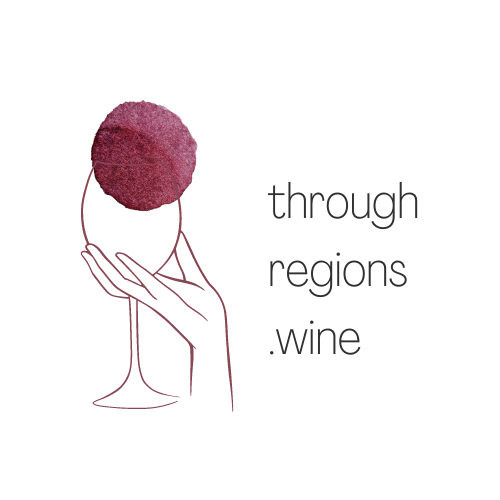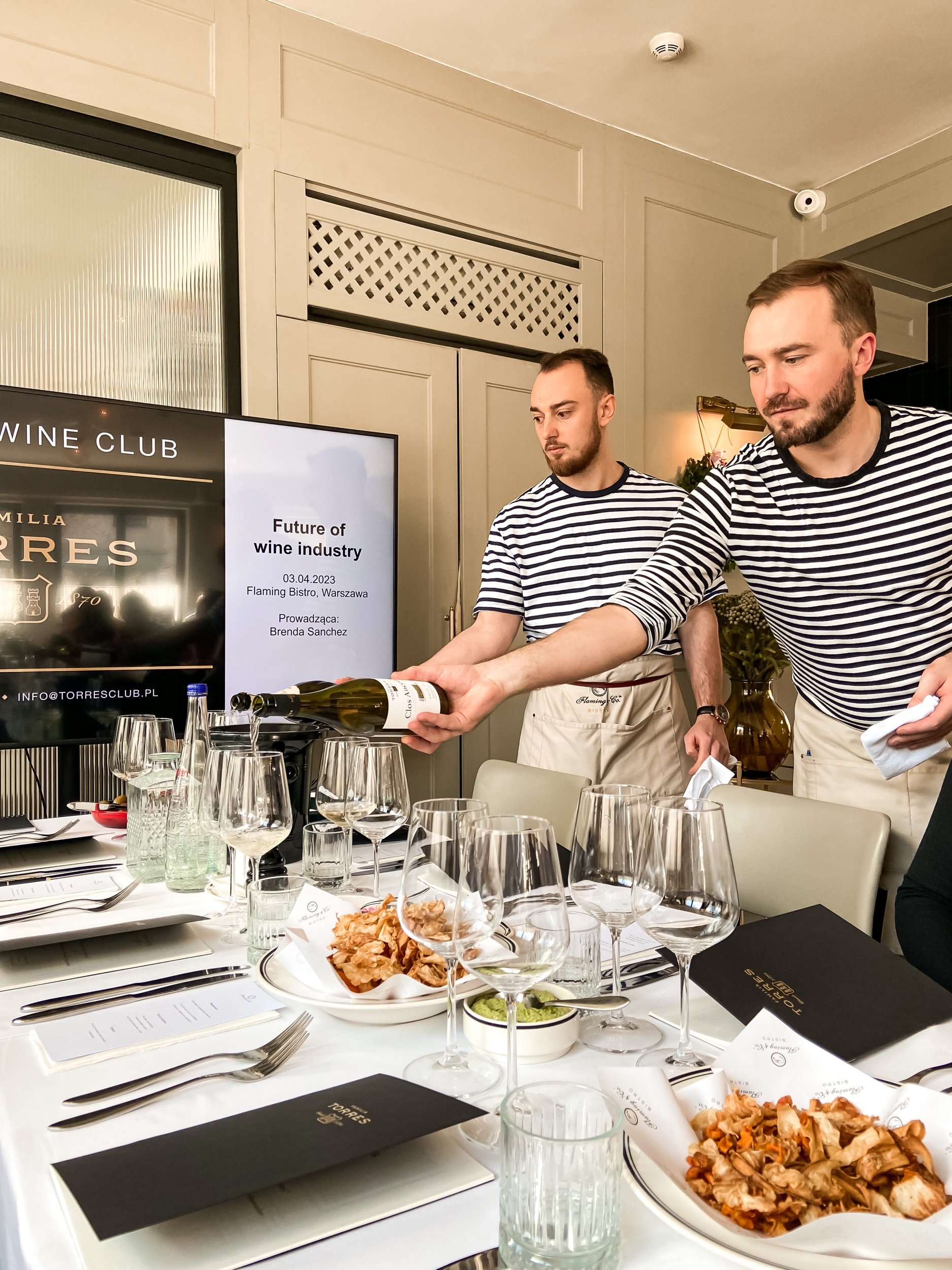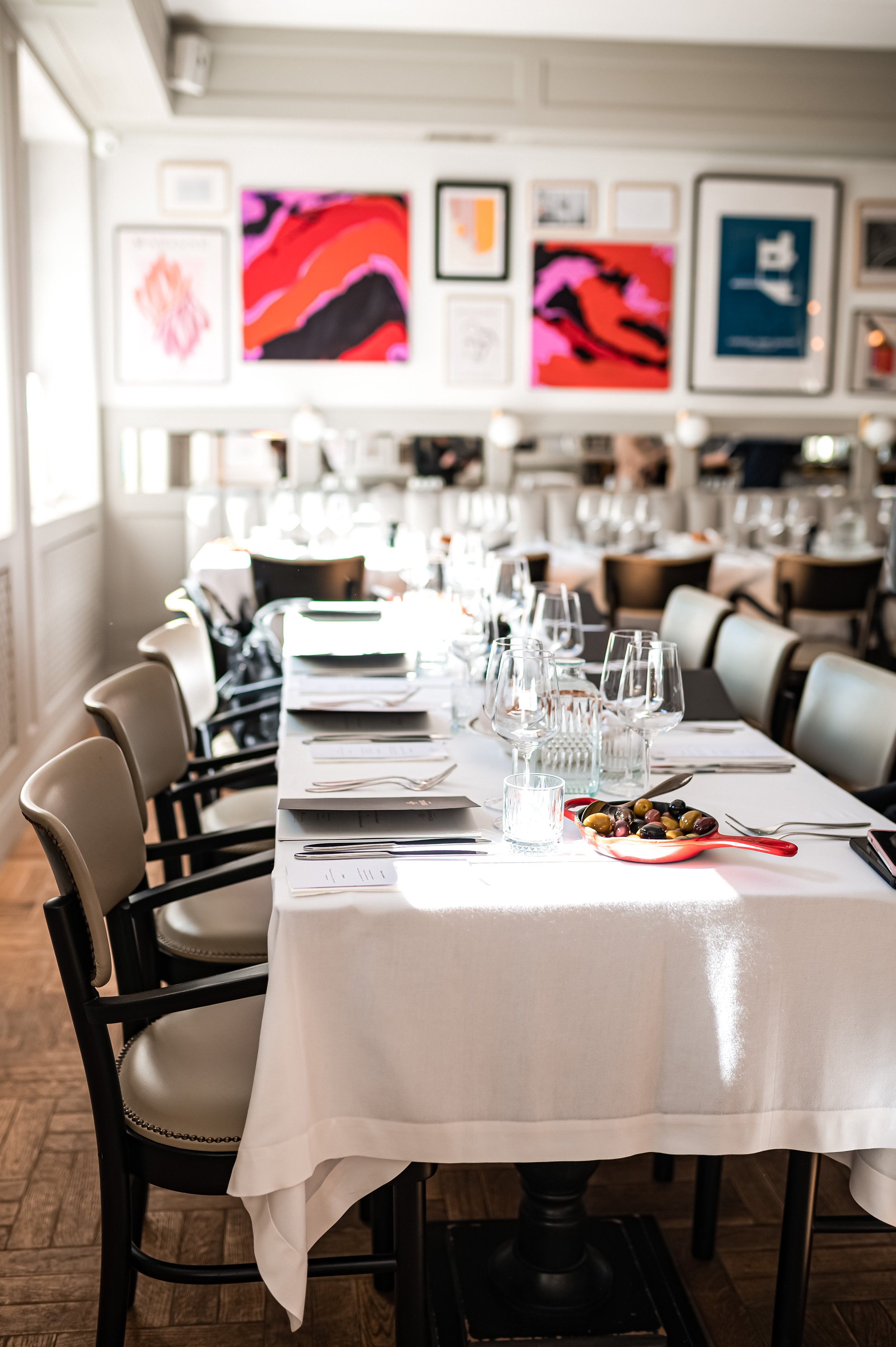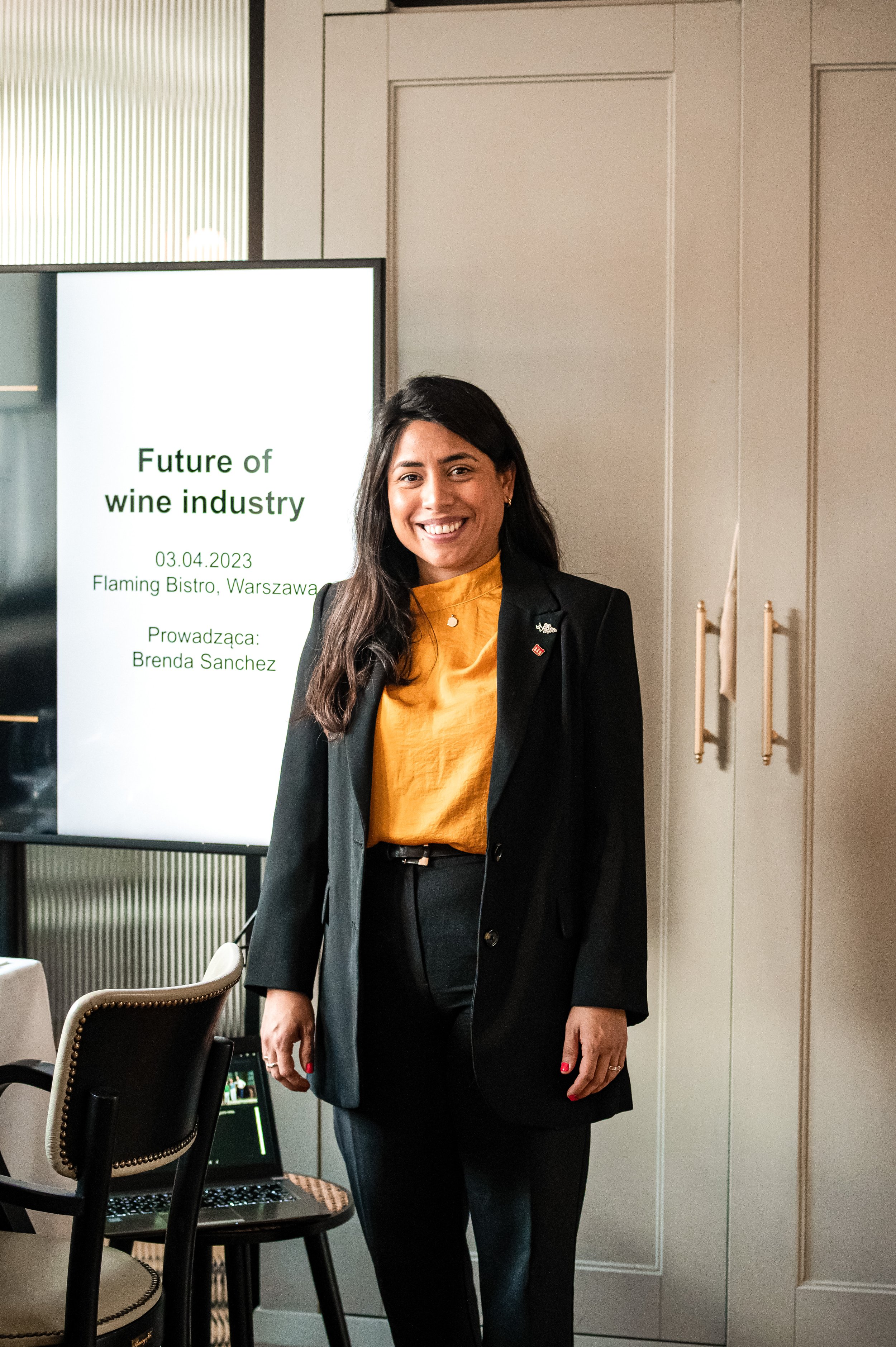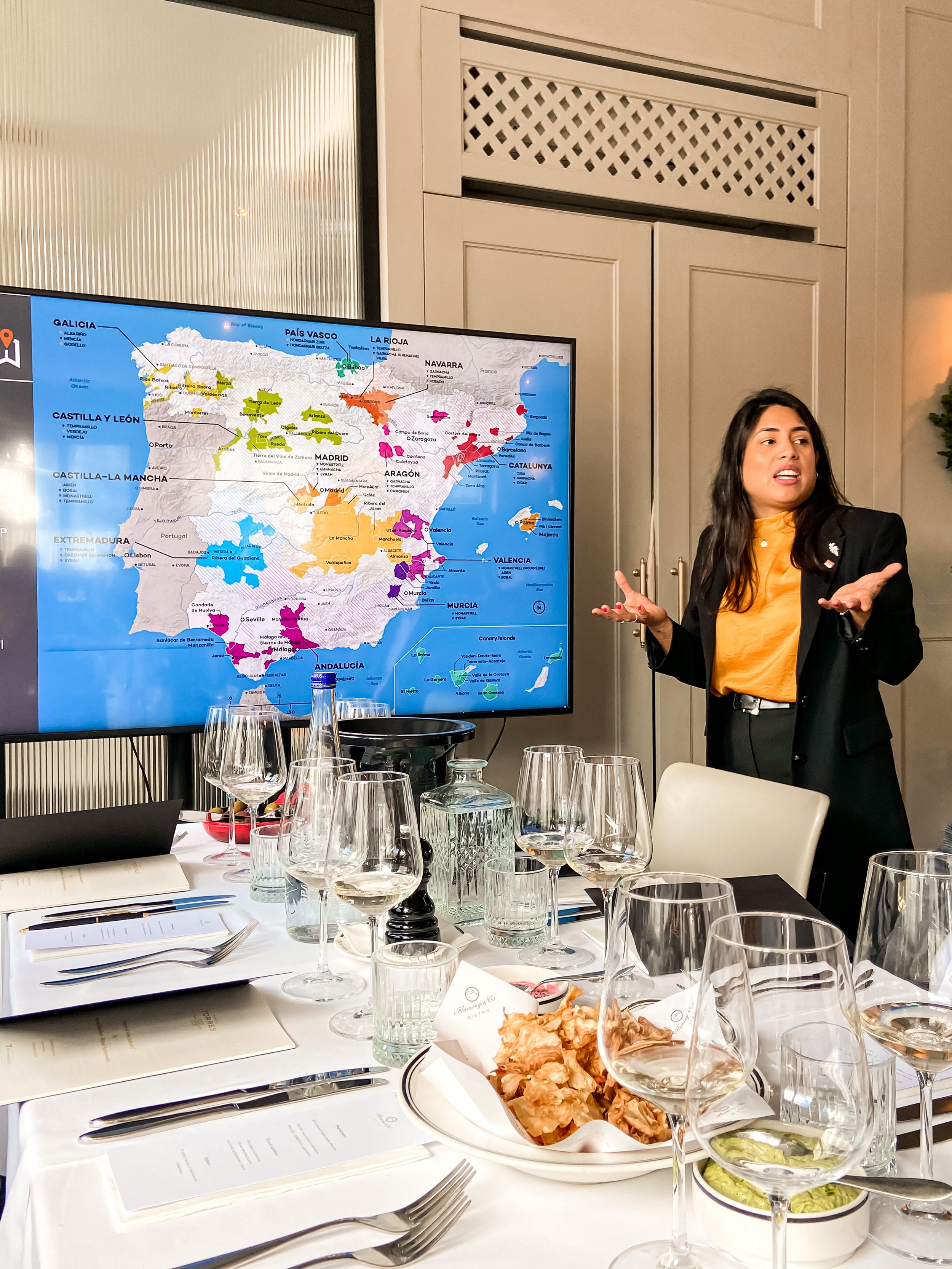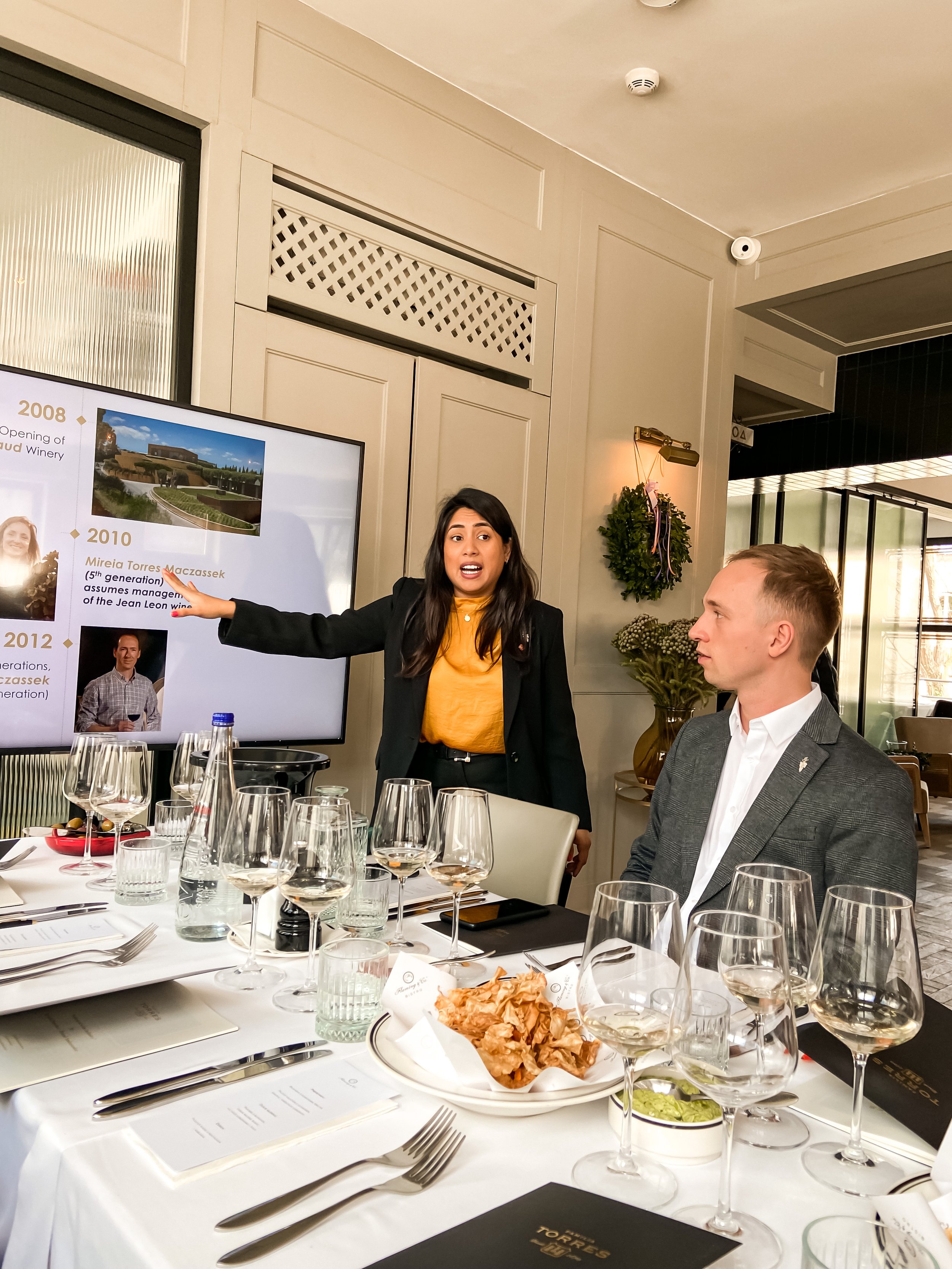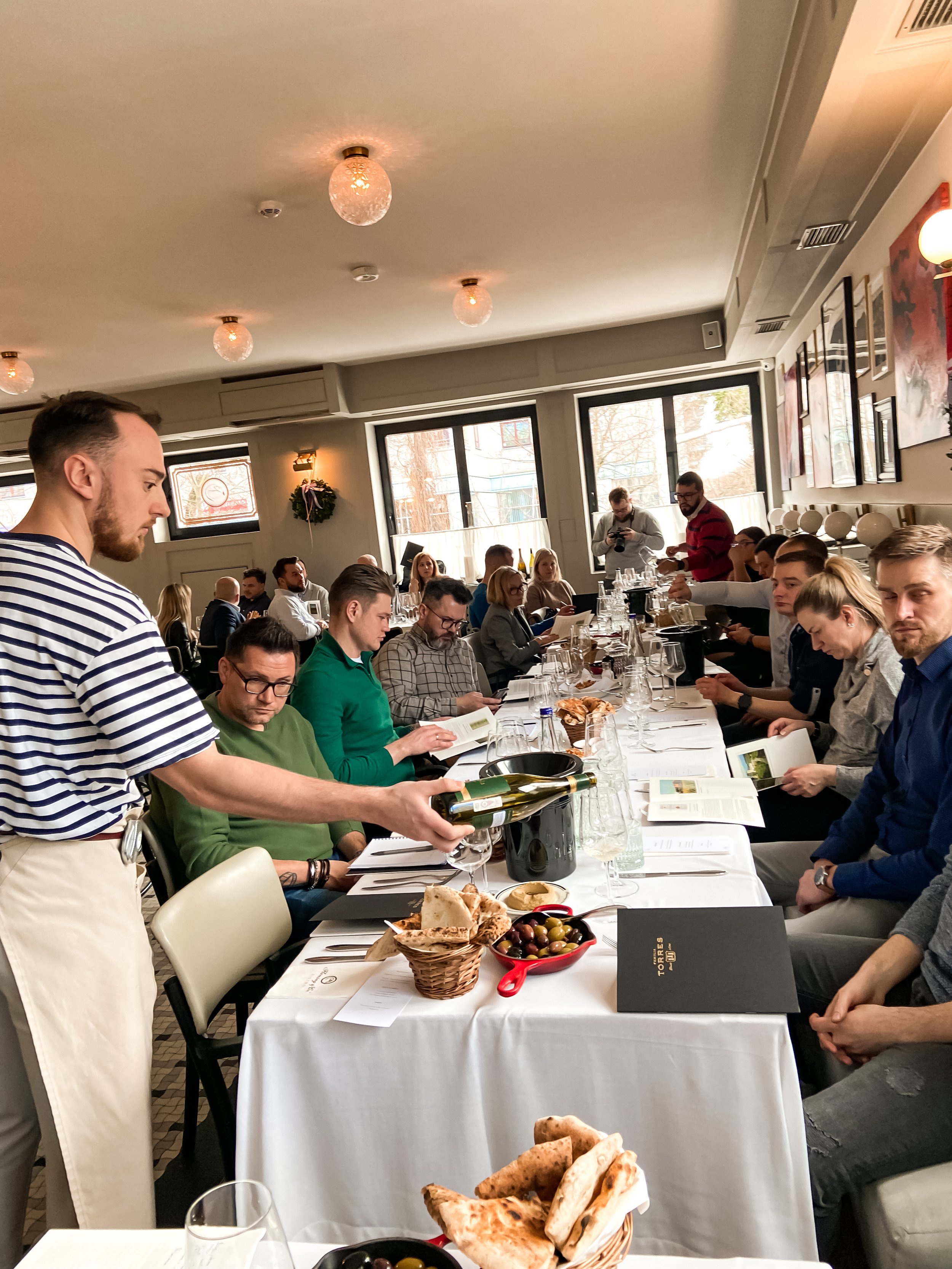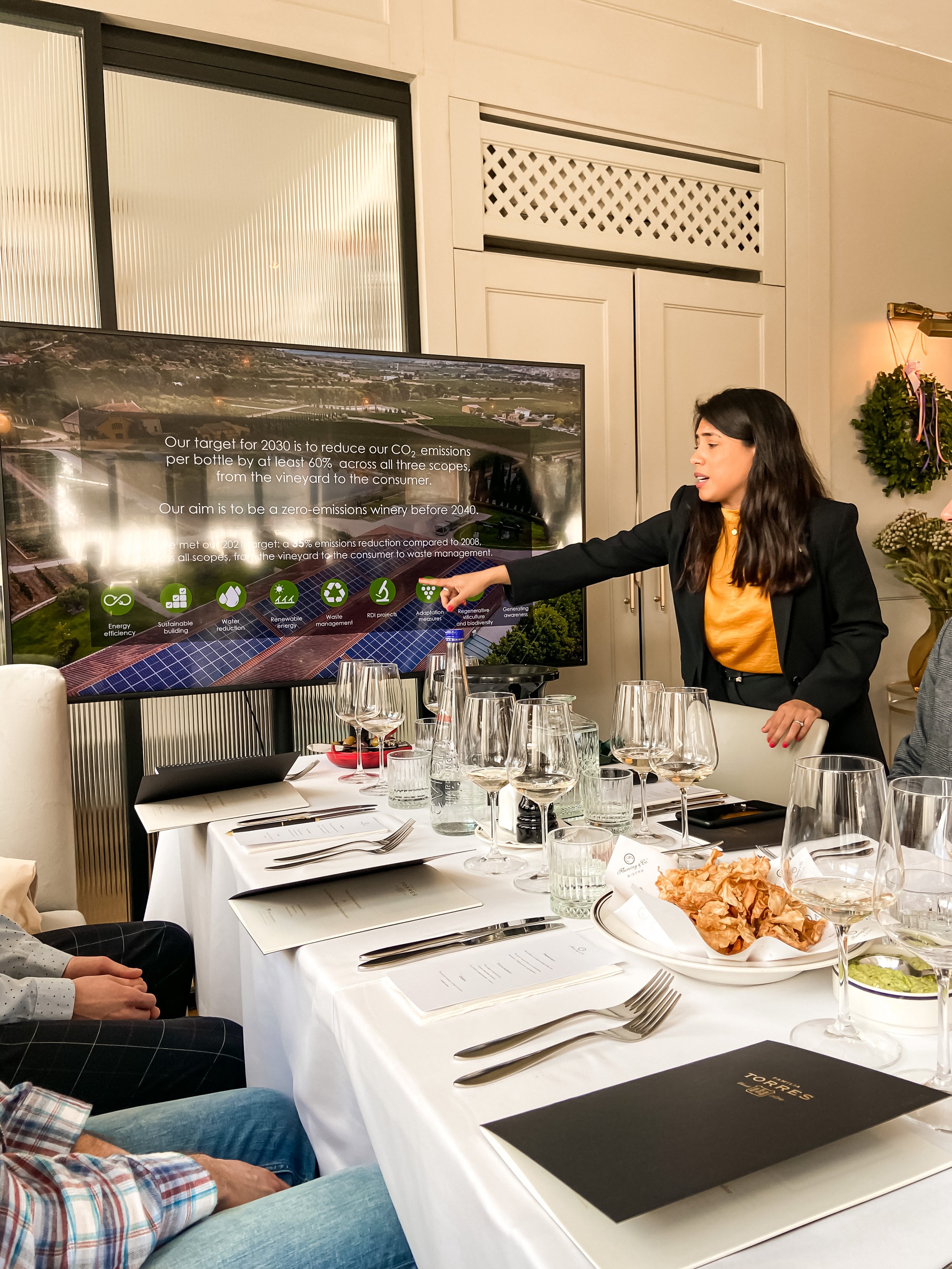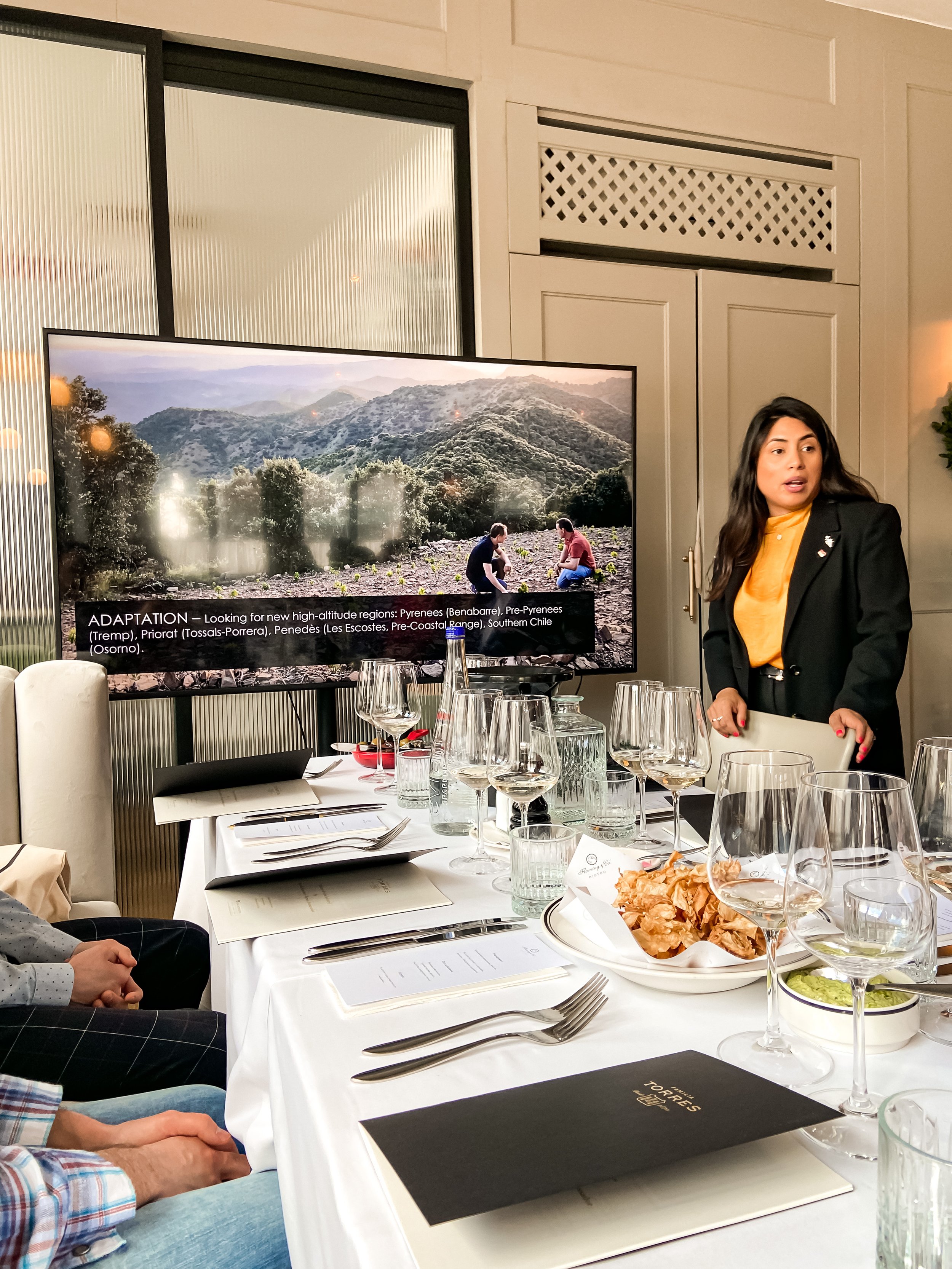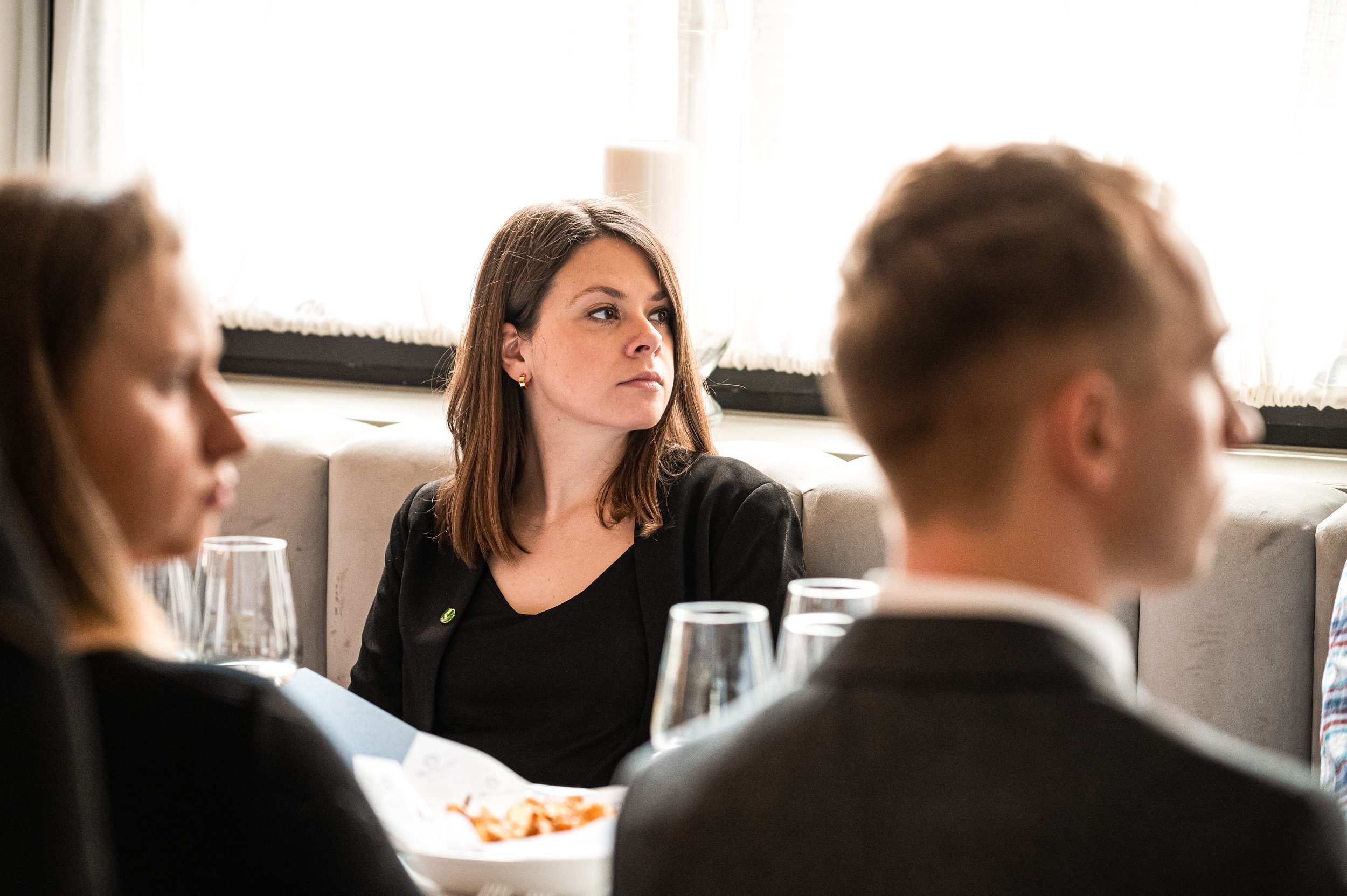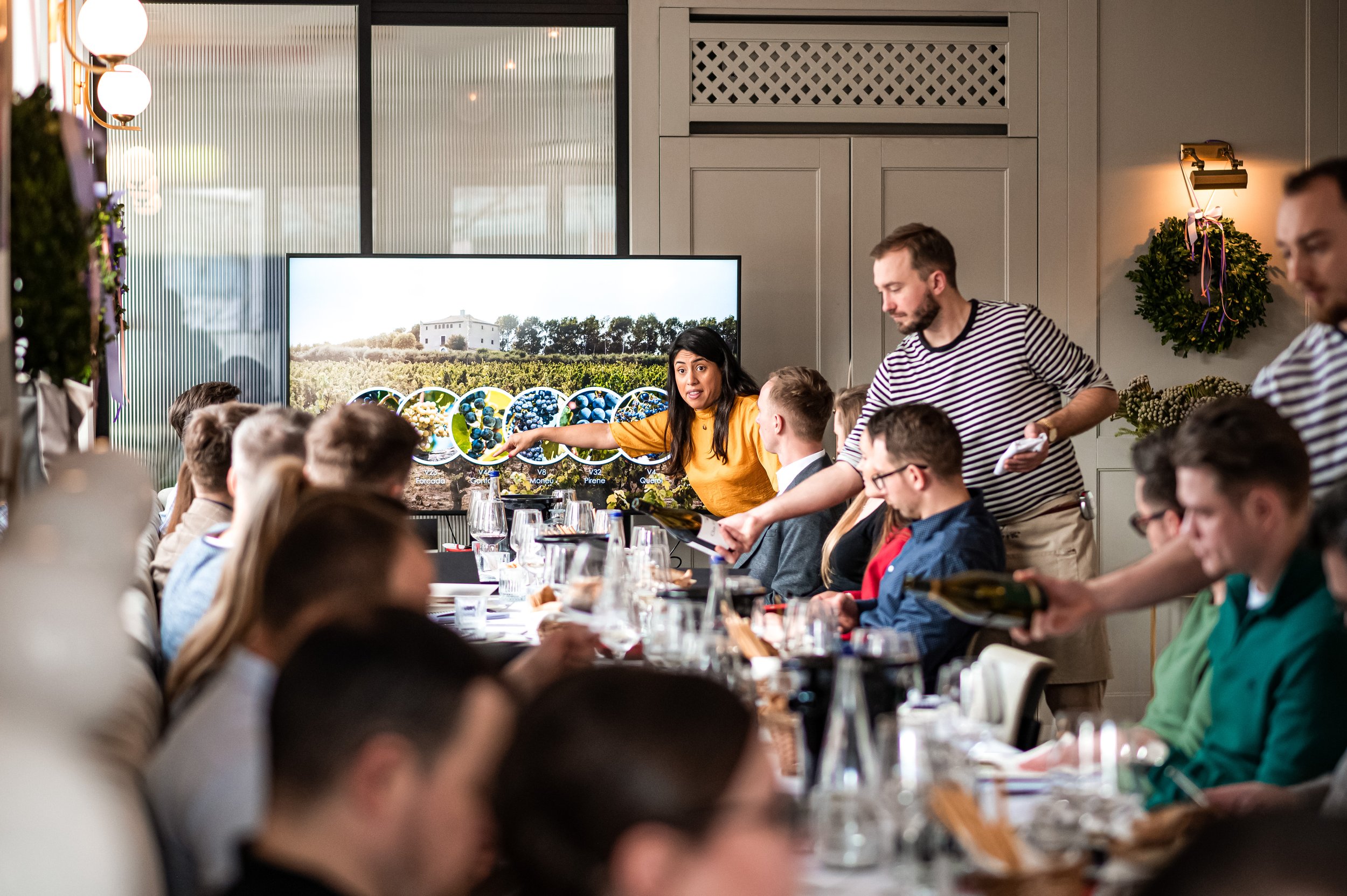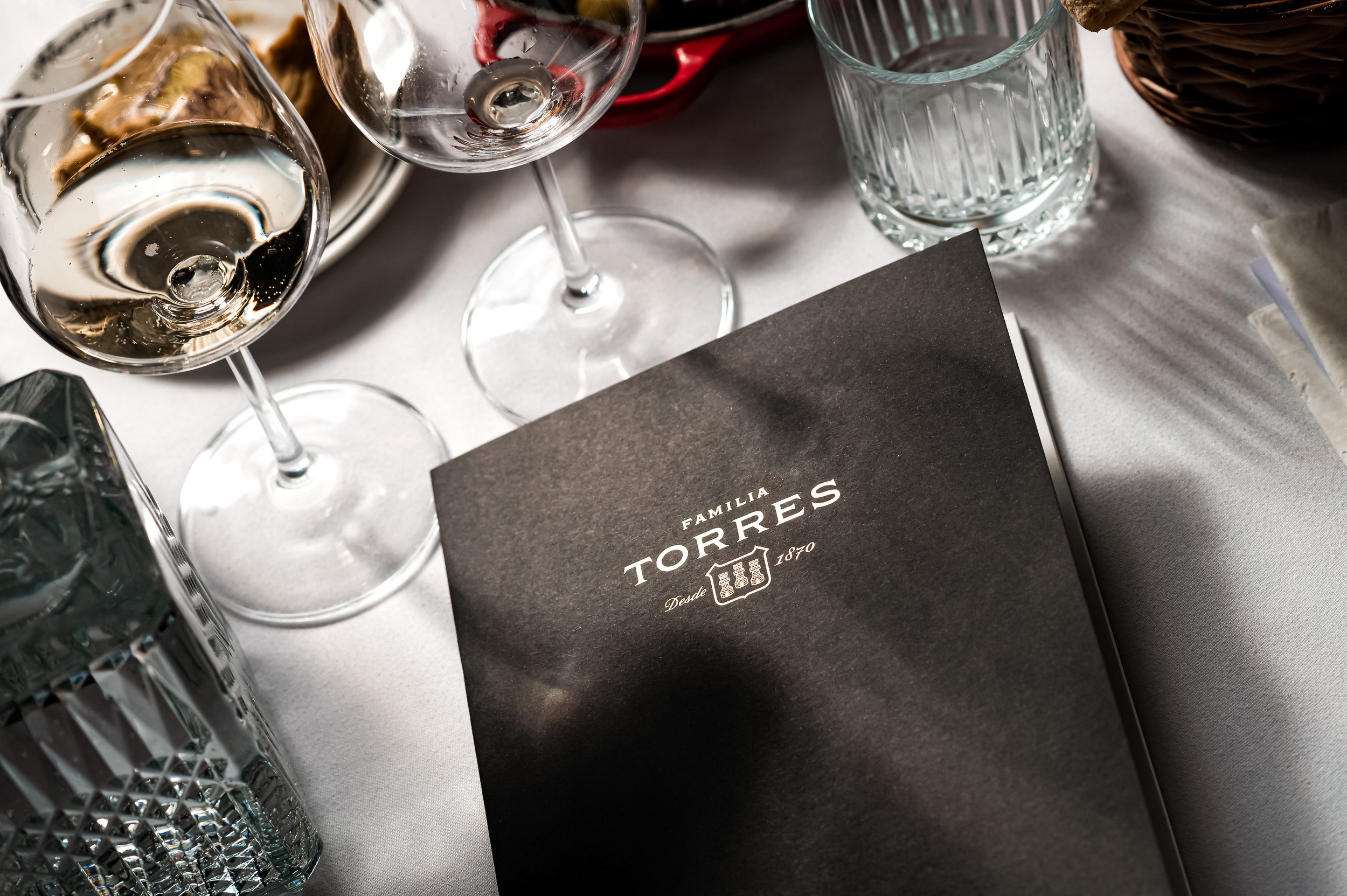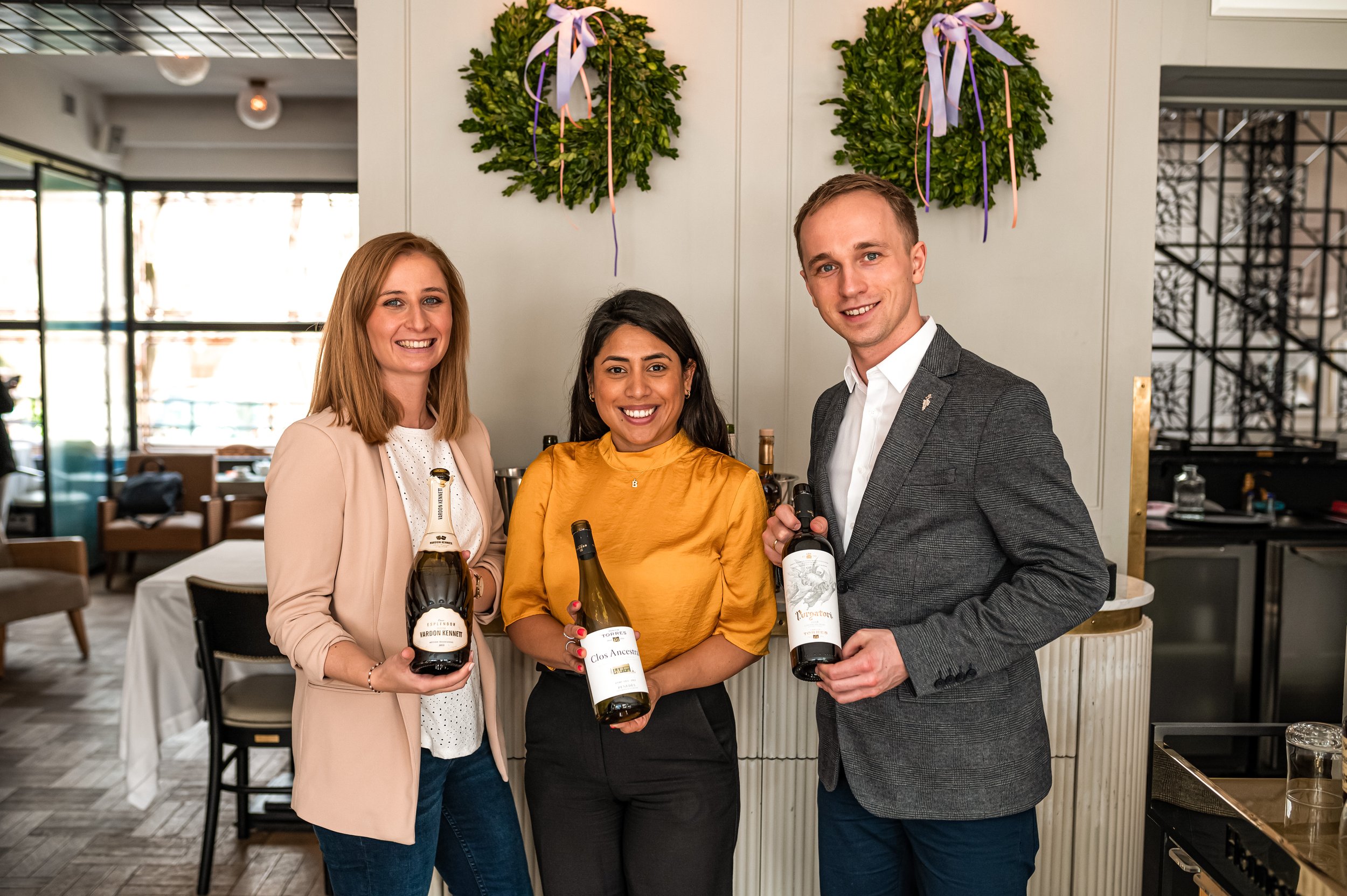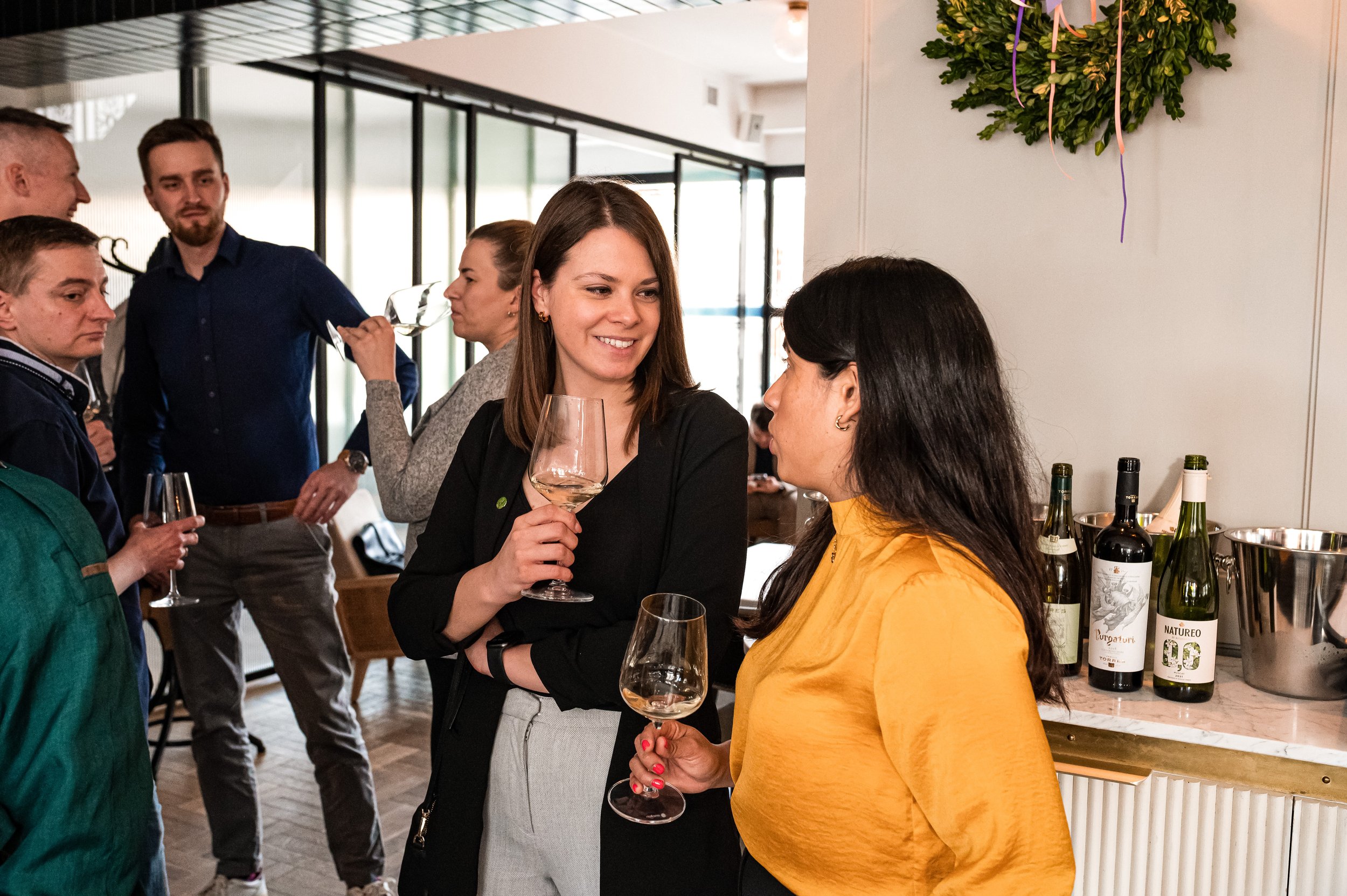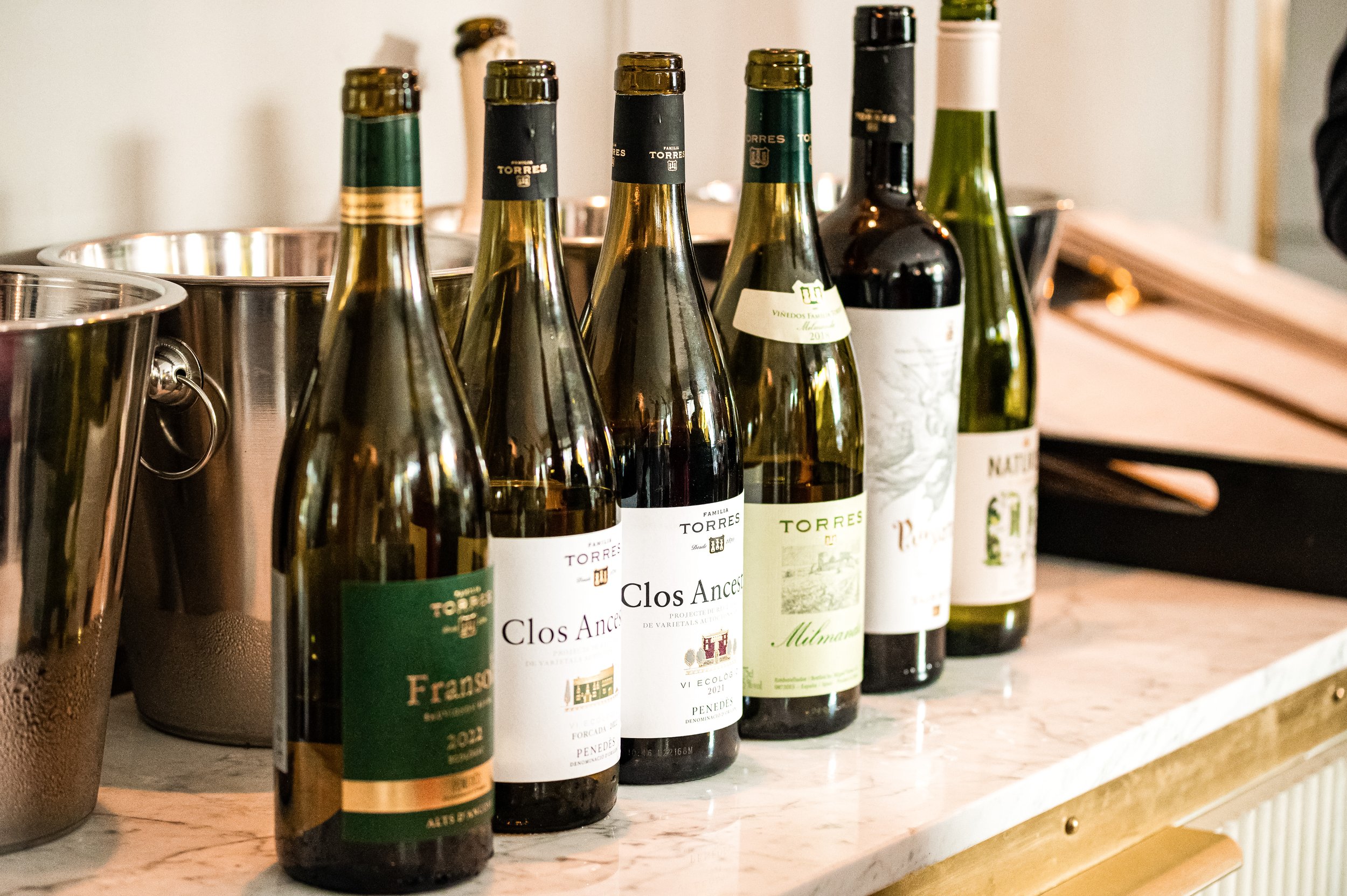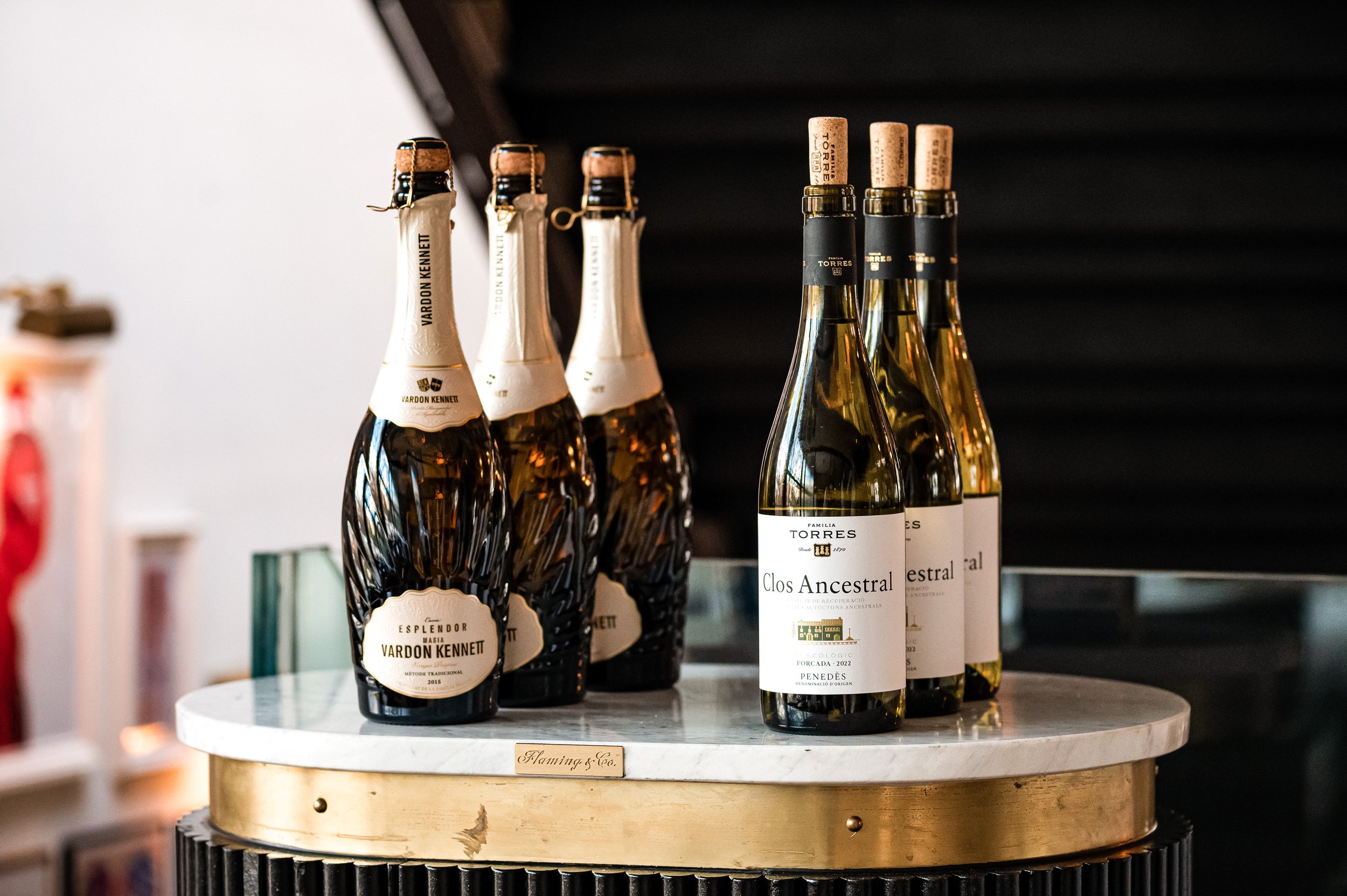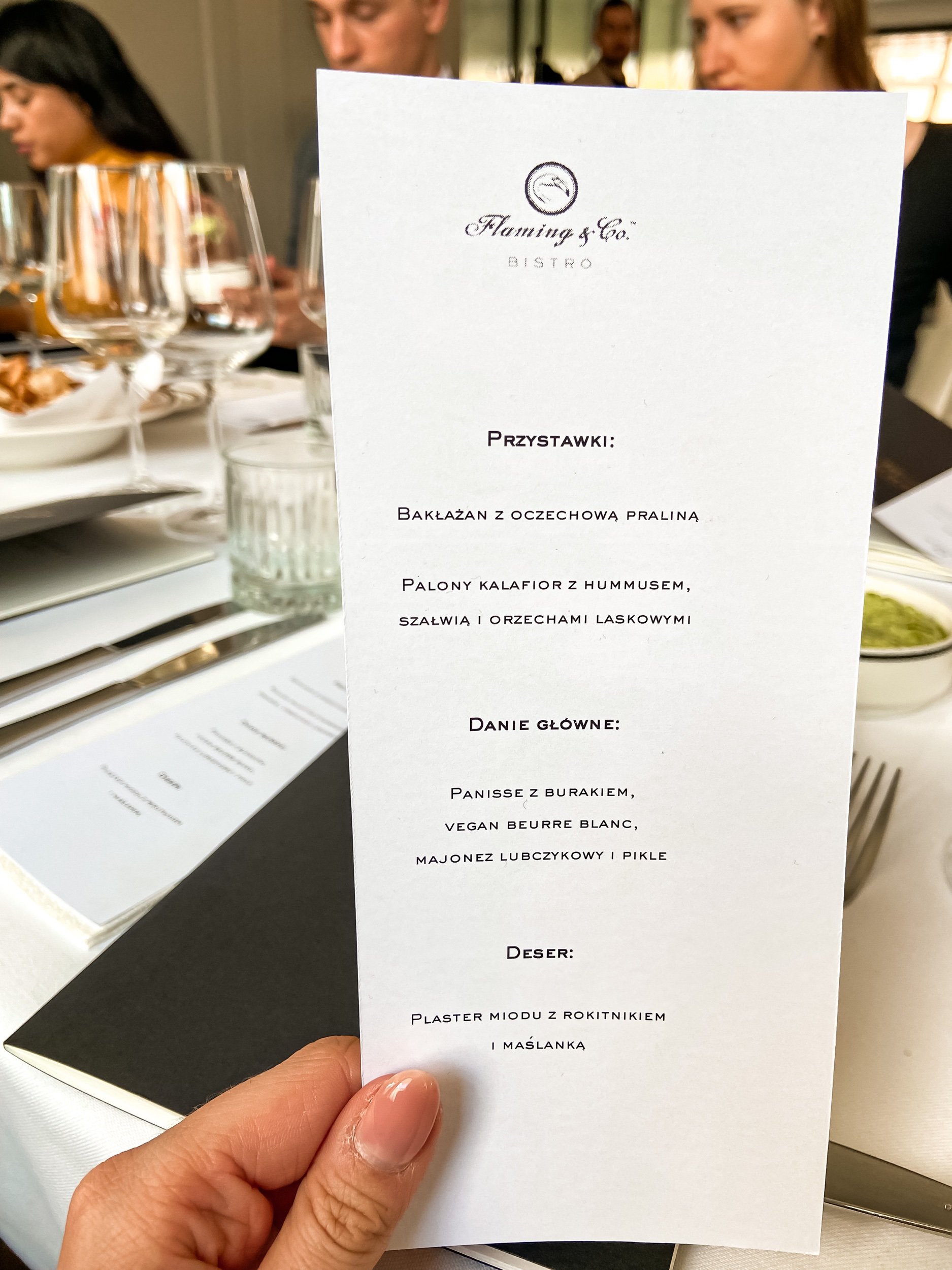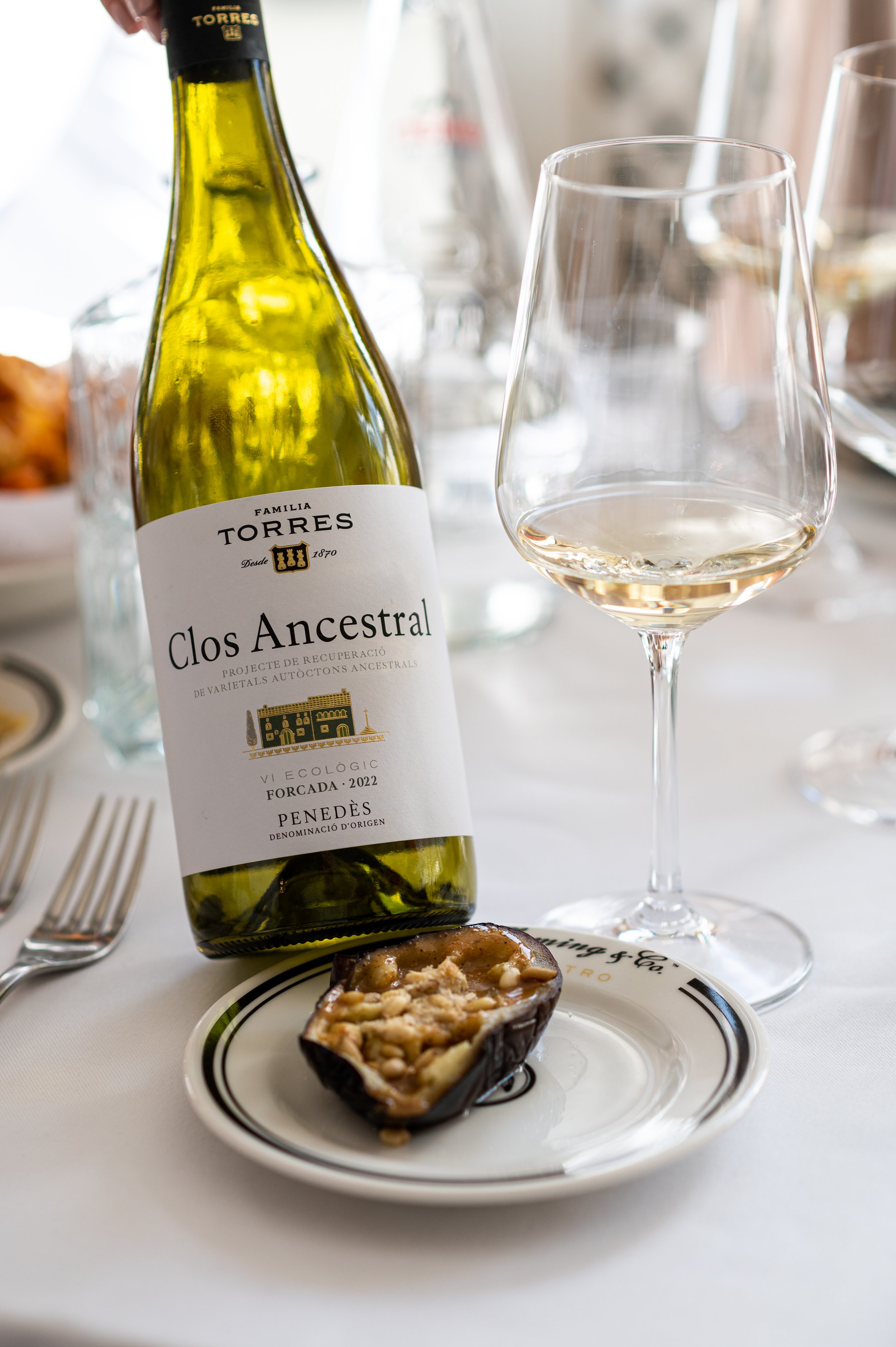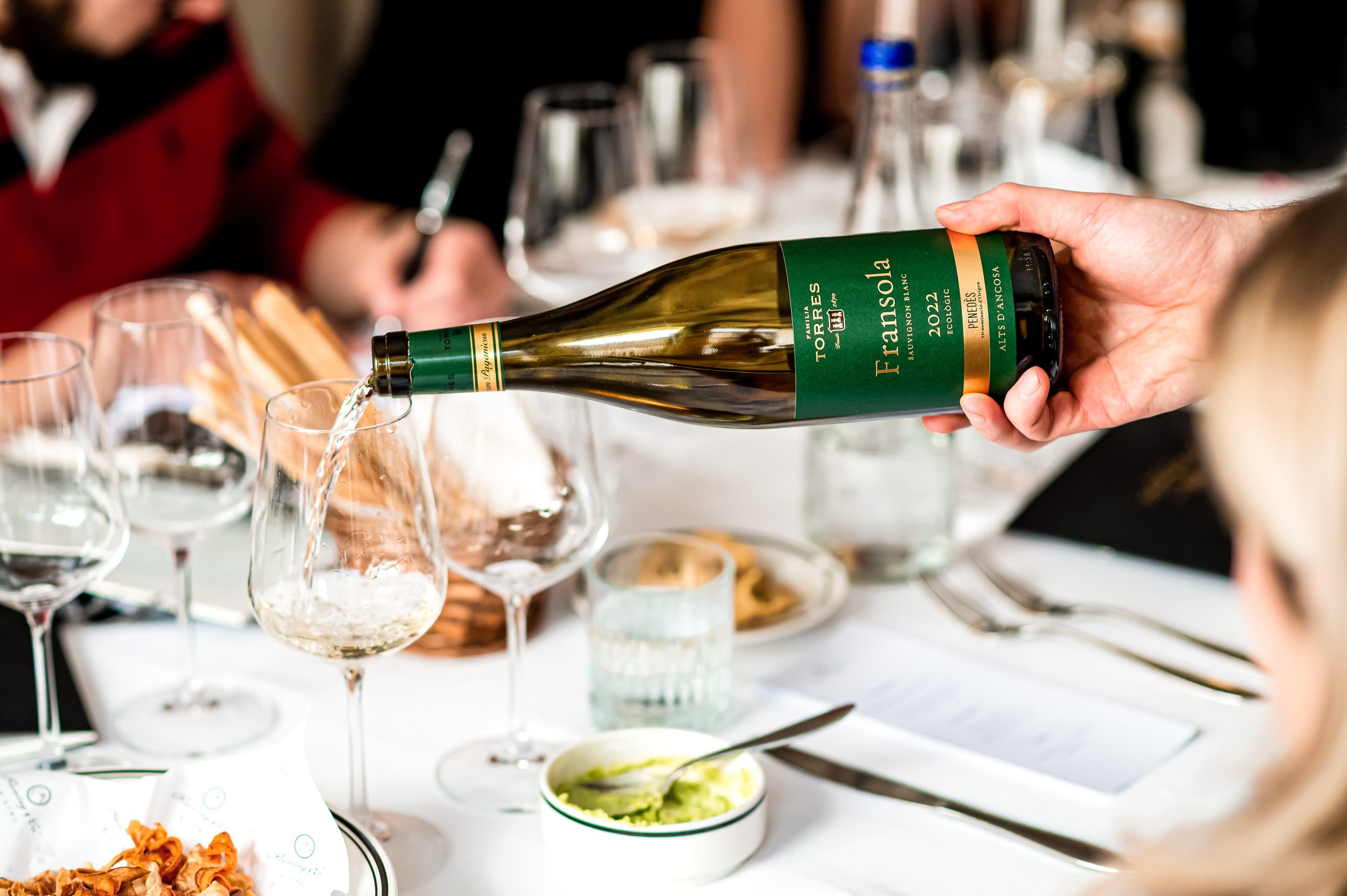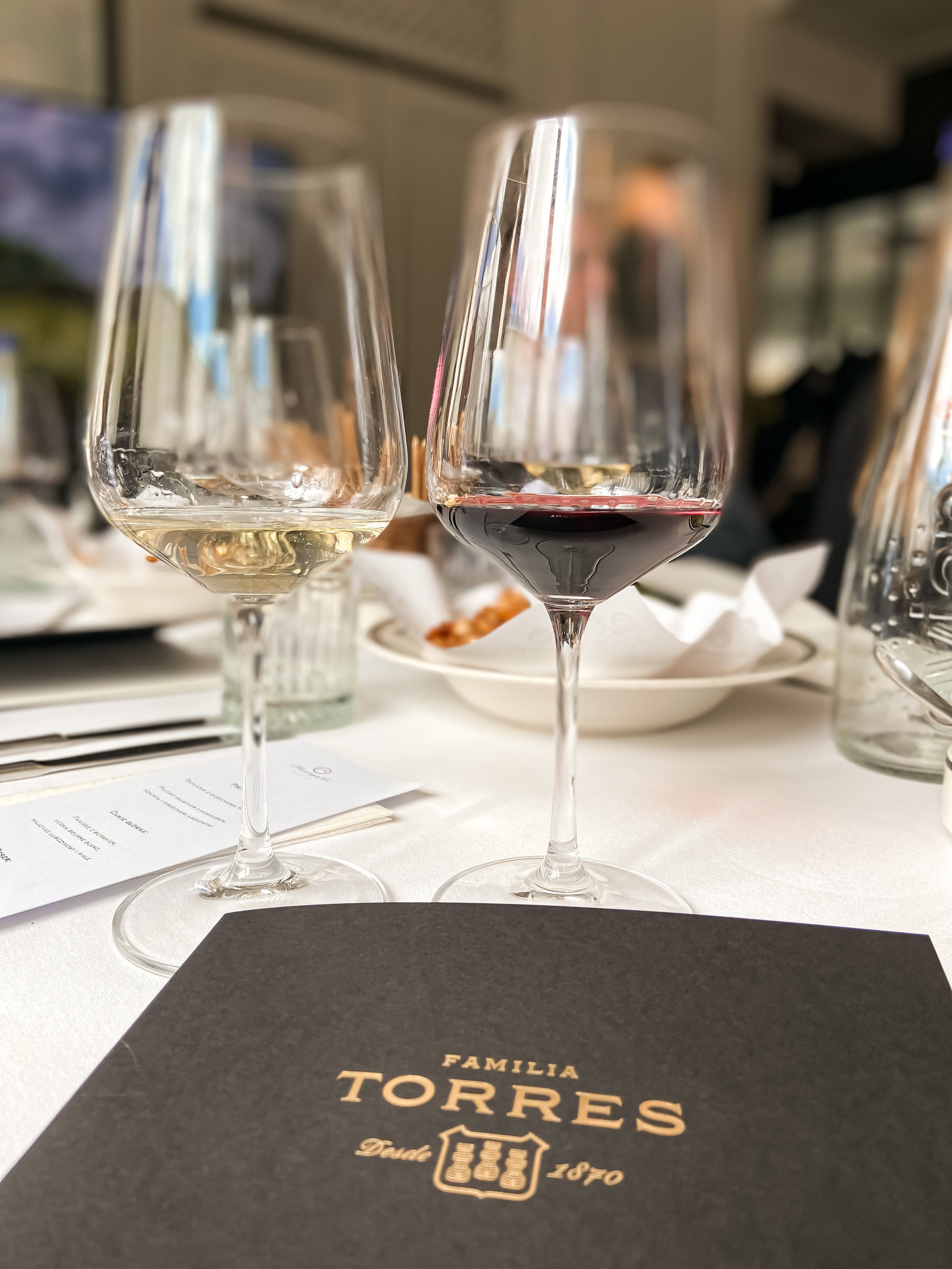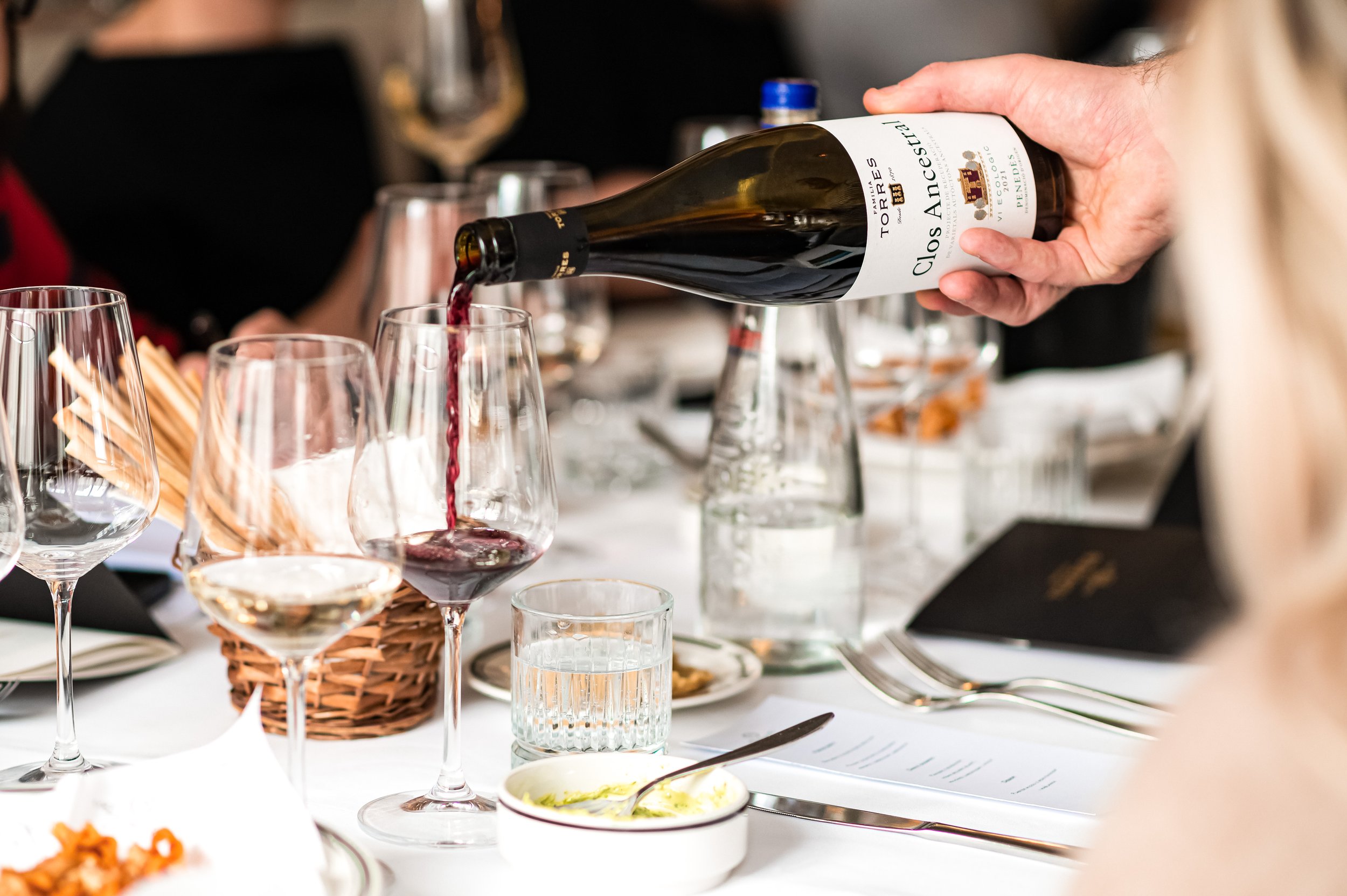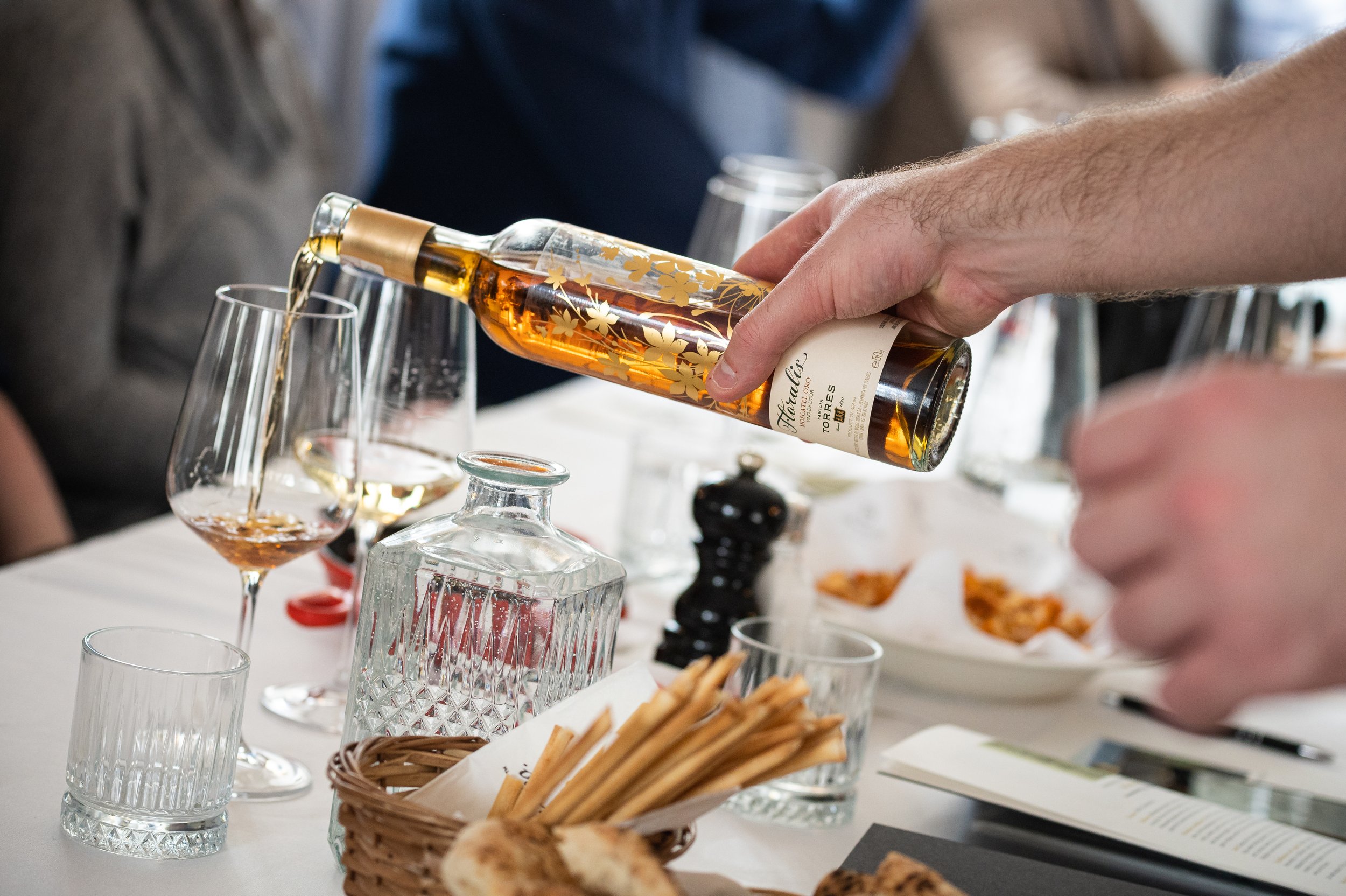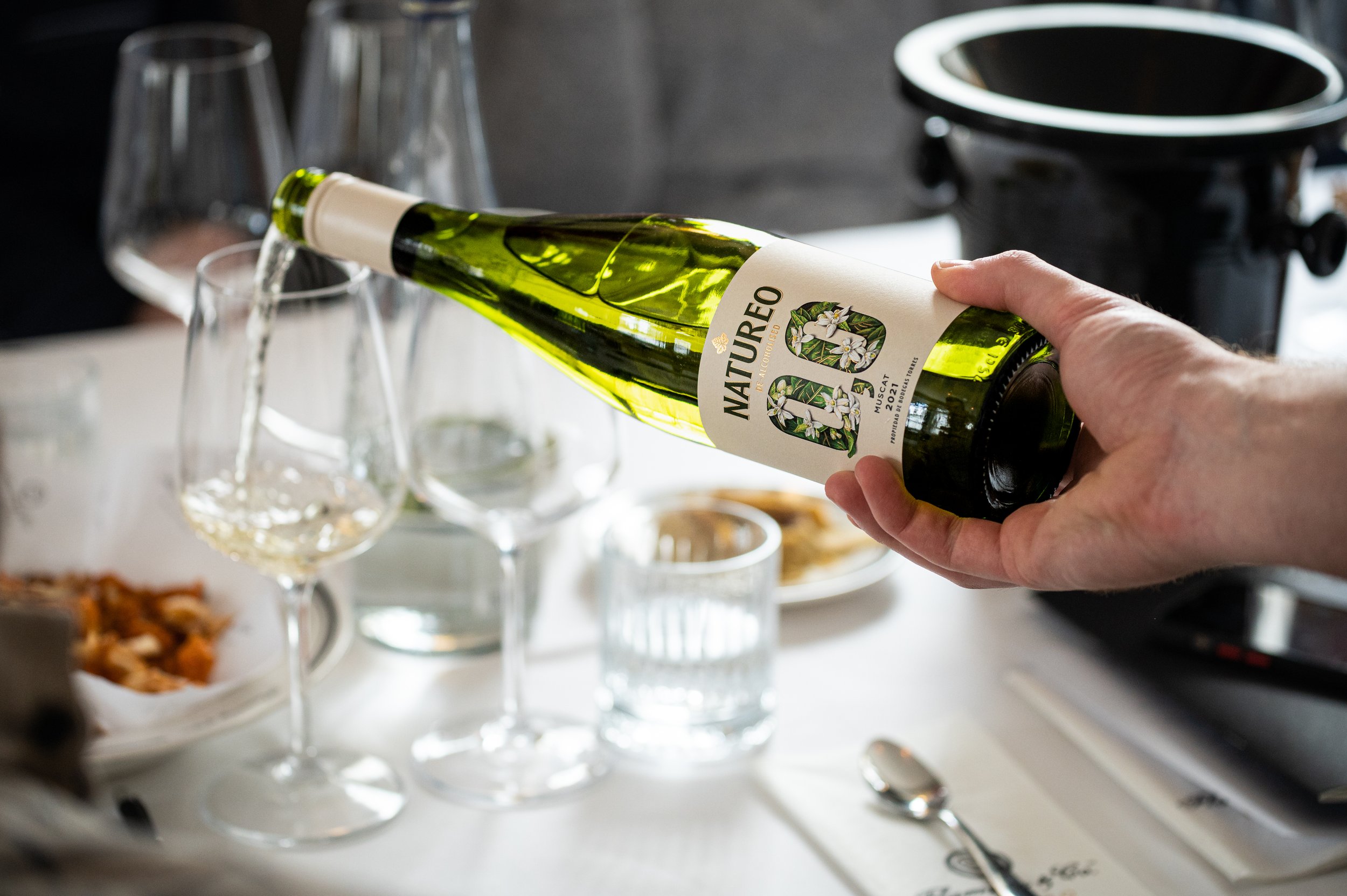Torres Wine Club. Future of the Wine Industry
What is the future of the wine industry? On the 3rd of April we discussed this topic during the 3rd and the most inspiring Torres Wine Club meeting so far with a special guest Brenda Sanchez, Brand Ambassador of Familia Torres. Except for a solid dose of knowledge about different ways in which Familia Torres flights climate change and decreases its carbon footprint, we had the chance to try vegetarian dishes prepared by Flaming Bistro paired with a choice of white and red Familia Torres wines. The first edition of the Torres Wine Club in Poland is co-organized by Winokąt and CEDC.
Familia Torres belongs to Primum Familiae Vini (PFV), is an international association of some of the world's finest wine-producing families, including Baron Philippe de Rothschild, Domaine Clarence Dillon, Egon Müller Scharzhof, Famille Hugel, Famille Perrin, Maison Joseph Drouhin, Marchesi Antinori, Pol Roger, Symington Family Estates, Tempos Vega Sicilia and Tenuta San Guido. 12 families meet once a year, this year in June to debate the future of the wine industry, sustainability, ecology and combating climate change come up as the most important issues.
Familia Torres recognizes that climate change is the biggest threat the wine industry faces today and is involved in a number of initiatives aiming to reduce its carbon footprint under the Torres & Earth program. According to experts, there is a possibility that the temperatures may increase by 2 to 5 degrees by the year 2100. In the event that global warming does not surpass the 2-degree mark, wine production could adopt techniques that would postpone the maturation of grapes. However, if the temperature rise is higher, it could have severe implications for wine growing as we know it today could be significant.
Bodegas Torres made a conscious decision in 2007 to assume a more prominent role in the battle against climate change and as a result, the Torres & Earth initiative was launched, which aimed to decrease CO2 emissions by 30% per bottle from 2008 to 2020. Familia Torres is also part of the International Wineries for Climate Action Issues Official IWCA Certificate for Member Wineries (IWCA), a collaborative working group of wineries committed to reducing carbon emissions across the wine industry.
Torres & Earth program has produced concrete outcomes, particularly in adapting the vineyard to rising temperatures, preserving biodiversity, improving energy efficiency, and practicing responsible water usage, among other aspects. Now, after ten years of research, the undeniable proof of climate change's influence on the vineyard merges with the remarkable outcomes of Bodegas Torres' projects implemented so far.
CARBON FOOTPRINT REDUCTION
By 2016, Familia Torres reduced its CO2 emissions by 40% from 2008, which amounts to 15.6% of per-bottle emissions. While their suppliers contribute 90% to their carbon footprint, they recognize the importance of working with them to achieve their goal of a 30% reduction in CO2 emissions by 2020. To that end, they have been collaborating with their suppliers since 2015 to create carbon footprint reduction plans that prioritize energy efficiency, renewable energy, biofuels, and environmentally-friendly packaging. This year, the company held its first awards ceremony to recognize suppliers who have made significant contributions towards combating climate change.
REVIVING ANCESTRAL VARIETIES AND OTHER VINEYARD ADAPTATION MEASURES
Prior to the Torres & Earth program, the project to revive ancestral varieties was initiated and is now seen as a forward-thinking decision. This project is integral to rediscovering the rich winemaking legacy of Catalonia by preserving indigenous varieties that were almost forgotten. The goal is to highlight the identity and origin of each wine in a world that has become increasingly globalized. Furthermore, many of these revived varieties have exhibited remarkable enological potential and natural resilience to rising temperatures, drought, and certain vine diseases. The success of the project is exemplified by varieties such as Garró, Pirene, Forcada, Gonfaus, Moneu, and Querol.
OTHER VINEYARD ADAPTATION MEASURES
To combat the effects of increasing temperatures, Familia Torres is implementing viticultural practices such as planting density, using drought-resistant rootstocks, and canopy management to delay grape maturation. Furthermore, the winery is exploring higher altitude cultivation areas that offer cooler climates and allow for gradual and even grape ripening, resulting in concentrated varietal aromas and appropriate acidity levels.
To achieve its carbon footprint reduction target, Familia Torres initiated several environmental measures in 2008, with the following being noteworthy:
Biomass boiler
In 2012, Bodegas Torres installed Spain's largest biomass boiler in their Pacs del Penedès winery. The boiler operates using pruning canes, old vines, pomace, and stems. Consequently, natural gas consumption at the winery has been reduced by 95%, and 1300 tons of CO2 emissions are prevented annually.
Photovoltaic array
The winery has a fixed photovoltaic system that spans 18,000 m2 and generates 1073 Kw of energy. Presently, renewable energy sources provide 25% of the electricity required by the Pacs del Penedès winery.
Carbon Capture and Reuse
For me, the most innovative solution introduced during the meeting was the reuse of the CO2 from fermentation as inert gas for the winery. A large balloon collects the CO2 during the fermentation process and distributes it to reuse in the winery.
Eco-efficient transport
Eco-friendly transportation is a key aspect of the carbon footprint reduction program at Torres. In 2007, the vineyard committed to replacing vehicles with hybrid cars with the aim of having a fully sustainable fleet by 2020. Also introduced a solar-electric train at Wine Center in Pacs del Penedès for wine tourism, which is the first of its kind in Europe and offers visitors a more sustainable Torres experience.
Reduction in bottle weight
Familia Torres reduced the weight of their wine bottles by 13%, which has resulted in lower CO2 emissions during production and transport. The weight of the bottles has been reduced from 400-420 grams to 280-300 grams.
Water management optimization
Bodegas Torres has installed two rainwater harvesting ponds with a total capacity of 38 million liters, a biological wastewater treatment plant, and a water purification plant that recycles water for gardening and cleaning. They have achieved a 40% reuse rate for water. The T&E program also emphasizes the protection of surrounding forests and biodiversity, recognizing the impact of environmental care on wine quality.
“The more we care for the earth, the better our wines”
Together with Brenda, Wojtek from Winkąt prepared for us a very special Torres Wines pairing with vegetarian dishes - not an easy task! We were presented with one white and one red wine to go with each plate and had to choose the wine we thought worked better, which made us think about individual ingredients in the dish and how those were complemented by the wine. We weren't always in agreement!
Cuvee Esplendor by Vardon Kennett 2015 - Pinot Noir 60%, Chardonnay 34%, Xarel·lo 6%. Sparkling wine from Spain, but it’s not a Cava, just a white sparkling wine. Grapes are being cultivated at a higher altitude to mitigate the influence of climate change. First vintage 2013, they don’t want to be part of the appellation. First nose: yellow apple, brioche, more texture, body.
Clos Ancestral 2022 DO Penedès - Forcada and Xarel·lo. 40 yeras ago Familia Torres started a project of recovering ancestral grape varieties and Clos Ancestral is one of the fruits of this work. Forcada is the first recovered white pre-phylloxera variety to be vinified and it gives a high-acidity wine with white flowers, peach, and sweet, a bit nutty notes on the nose. It’s also more tolerant of drought and higher temperatures, very important given the climate change.
Fransola 2022 DO Penedès - 100% Sauvignon Blanc. The style of all Familia Torres wines goes in the direction of lightness and drinkability, which is visible also in this wine. It’s Mediterranean-style Sauvignon Blanc, from one of the highest areas of Penedès, where the cold nights and warm days create an excellent climate for wine growing. The combination of the altitude plus the chalky clay soil allows this white variety to develop optimal aromatic expression with herbal and fruity aromas on the nose.
Clos Ancestral 2021 DO Penedès - Moneu, Tempranillo & Garnacha. Vineyards around Castell de la Bleda in the heart of Penedes, the region Familia Torres calls home, have grown there for more than 2000 years. DO Penedes lies between the sea and mountains, which gives vines a unique micro-climate to grow. You probably never heard of Moneu grape variety, an ancestral variety indigenous to Penedes, which Familia Torres reintroduced with plantings in the vineyards of Castell de la Bleda. It’s more resistant to drought and high temperatures, so important given rising temperatures and the climate chnage. Still bright, sour cherry, a bit herbaceous and spicy at the finish. In my opinion, Clos Ancestral went better with the roasted cauliflower with hummus, sage, and hazelnuts. It brought out sage in the dish.
photo credit: @Robert Kuźma_foto
Milmanda 2018 DO Conca de Barbera - 100% Chardonnay. Rigorous selection of the best grapes from deep silt-rich calcareous clay soils. Fermented in 300-liter barrels (80% new French oak), then undergoes partial MLF (20%). The wine is aged for 4-6 months in oak barrels followed by 10 months of lees aging in vats with periodic batonage. My favorite wine of the tasting, “Mediterranean style” Chardonnay with French vinification. Rich in stone fruits, pineapple, and buttery notes.
Purgatori 2018 DO Costers del Segre - Cariñena, Garnacha, Syrah. Grapes come exclusively from handpicked plots. It ferments between 7-10 days, primarily in stainless steel, then undergoes MLF in oak barrels. It’s aged between 15-18 months in French oak barrels from Nevers (30% new oak). Rich fruit, elegant, rounded. Would go perfectly with lamb, but matched the panisse with beetroot, vegan beurre blanc, lovage mayonnaise, and pickles very well.
Natureo 2021 De-Alcoholised - the idea behind the Natureo was firstly to make great white wine and then to de-alcoholize it. It’s based solely on Muscat, expressive and a very fragrant grape variety with white flowers and peaches on the nose. To our surprise, Natureo has a substantial amount of sugar added, necessary to increase the body and structure, but despite 42,6 g added, 6,2 g/l tartaric acid balances it out. 0% wines are a quickly growing market segment and Natureo is probably the best de-alcoholized wine I have tried so far.
Floralis Moscatel Oro - 100% Muscat d’Alexandrie, 15 abv. It’s the oldest wine Familia Torres makes and one of the Mediterranean’s most characteristic dessert wines. It’s made following an ancestral method - after 6 hours of maceration, a distilled spirit, usually brandy, is added to the must to prevent further fermentation and retain unique moscatel aromas of fresh fruits and flowers.
photo credit: @Robert Kuźma_foto
